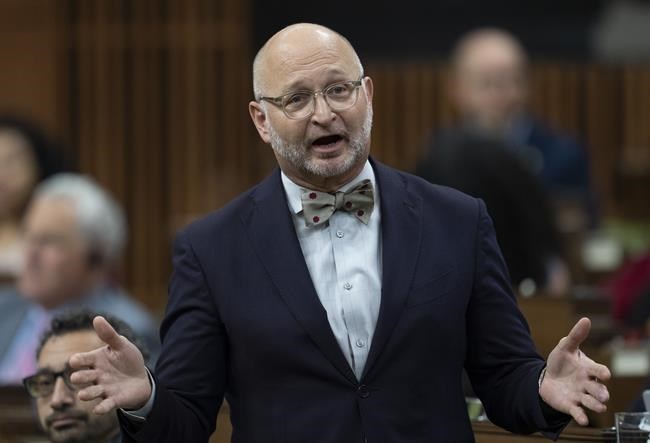OTTAWA — Justice Minister David Lametti said Canada still hasn't sorted out how to solve an issue other countries fixed months ago, leaving Canadian humanitarian groups unable to help desperate Afghans.
Despite revelations Ottawa has been in regular talks with the Taliban regime, the Liberals have no explanation for why they won't let Canadian groups provide life-saving help.
"It is a complex matter and we are searching for solutions," Lametti told the Senate on Wednesday.
Aidgroups say they are unable to provide assistance to people in need because of fear they could face reprisals under Canada's terror laws, which list the Taliban as a terrorist entity.
Organizations told members of Parliament in the spring that Global Affairs Canada said they would not be able to pay a driver to deliver food or supplies because doing so would incur taxes sent to the Taliban.
Those MPs belonged to a House of Commons committee that probed Canada's response to the fall of Afghanistan back into Taliban rule. In June, it called on Prime Minister Justin Trudeau's government to modify the law to allow aid groups to provide assistance to those on the ground without being prosecuted for helping a terrorist group.
Months later, that has not happened. Opposition parties and humanitarian groups are accusing Ottawa of dragging its feet, and Canada's allies found exemptions this spring.
Lametti said in an interview on Tuesday that the government is "sensitive" to the issue, but that multiple departments still haven't come up with a solution.
"Criminal Code amendments are one option on the table — they’re not the only option on the table, and we’ll do our best to find the right solution."
He added it's important that whatever solution the government lands on doesn't carry unintended consequences,without providing an example.
Sen. Ratna Omidvar said Wednesday that the situation in Afghanistan is beyond urgent and the government should by now have plans in place to offer some kind of exemption.
"I don't care which way they fix it. I don't care if it's an exemption from prosecution or it's a change in the anti-terrorism court — I just want them to get it done."
She also questioned whether the government is truly seized with the issue as it has stated, given that it's still weighing options months after it was first flagged.
"Thinking about it is not being seized with it," she said, adding thatCanadian NGOs "have their hands tied behind their backs."
Omidvar pressed Lametti on the matter in the Upper Chamber, asking for a timeline for change.
Lametti instead reiterated that it is a serious matter.
"Obviously I can't get in front of the process as it's moving forward, given the way our Parliament works," he said.
"We are examining all options, and I can't say more than that."
In late August, UN humanitarian chief Martin Griffiths said more than half the Afghan population — some 24 million people — need assistance, and close to 19 million are facing acute levels of food insecurity.
The charity Street Child says there has been a tripling of child labour as Afghanistan faces drought, economic tumult and high oil prices, and officials expect a worse situation as winter sets in.
Foreign Affairs Minister Mélanie Joly said the Liberals will have something shortly for non-governmental organizations.
"We need to make sure the money is able to get to NGOs, so we'll be coming with solutions on that very soon … to find ways to be able to help people of Afghanistan suffering from the Taliban regime," she said in a Wednesday interview.
Joly also confirmed a media report that Canada has been in regular talks with the Taliban starting just weeks after it took over Afghanistan in August 2021.
The Taliban, which Canada lists as a terrorist organization, has been in recurring discussions with western officials during meetings in Doha, Qatar.
"We have no intention of recognizing the Taliban regime, and so what we're doing out of Doha is really making sure that we push the issues that Canadians care about, and that includes girls and education," Joly said.
She did not comment on the merits of Canada joining allies to launch a multi-country representative office, which some experts have proposed in lieu of a formal embassy, to keep track of the human rights situation in the country.
Trudeau told reporters that the Doha talks are meant for raising human rights, and to help get people out of Afghanistan.
"Unfortunately, we have to have undertakings with these people," he said in French.
This report by The Canadian Press was first published Oct. 5, 2022.
Dylan Robertson and Stephanie Taylor, The Canadian Press
Note to readers: This is a corrected story. A previous version said Justice Minister David Lametti was scheduled to appear before a Senate committee on Wednesday afternoon.



